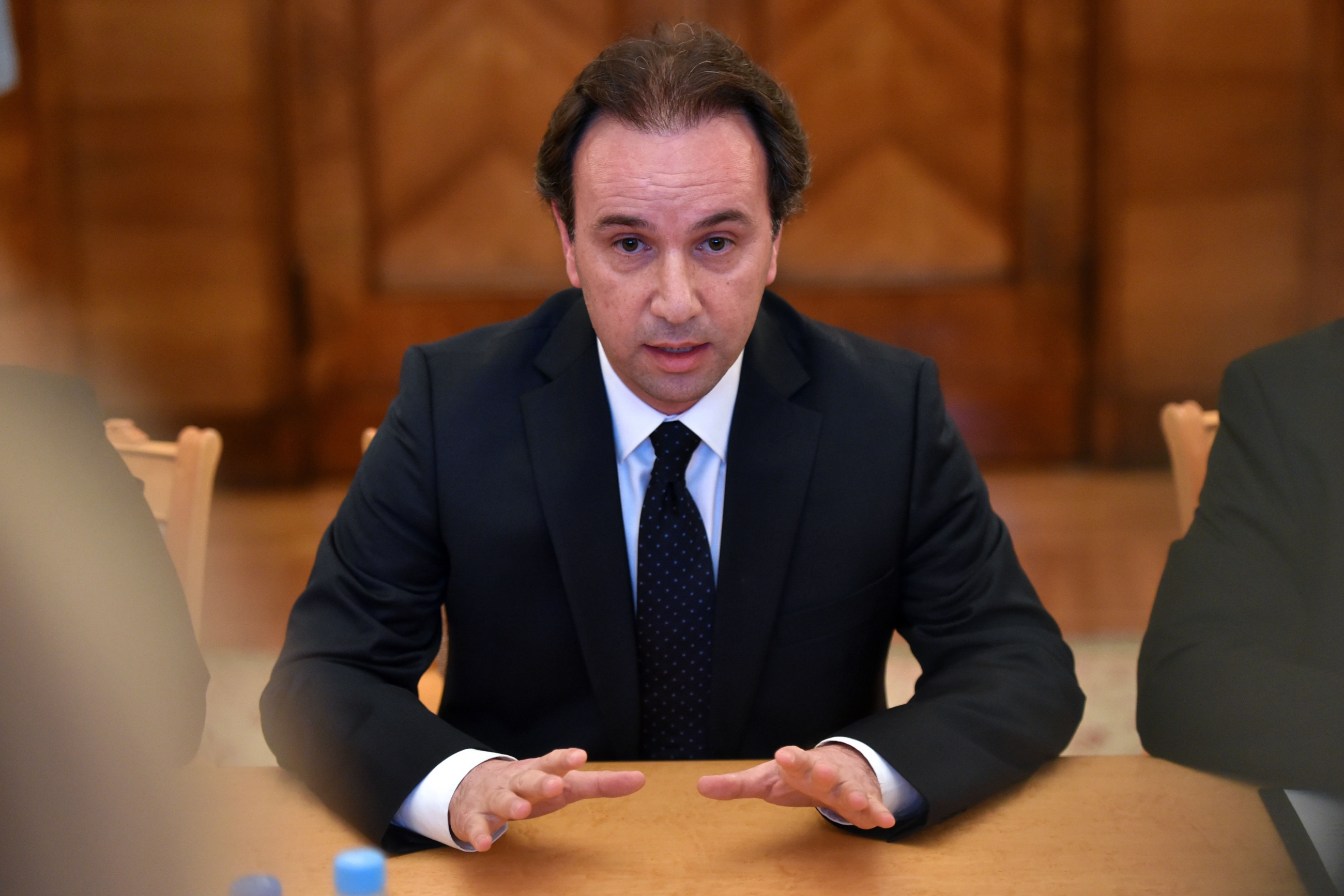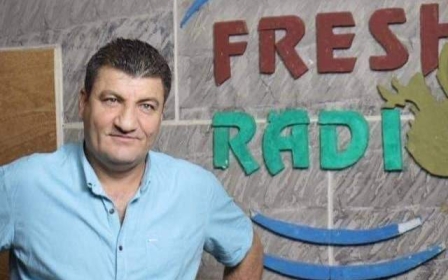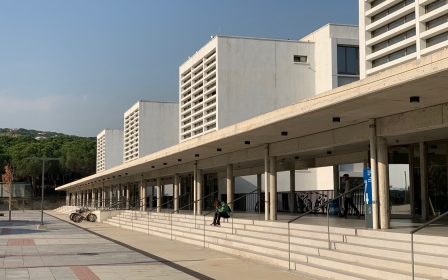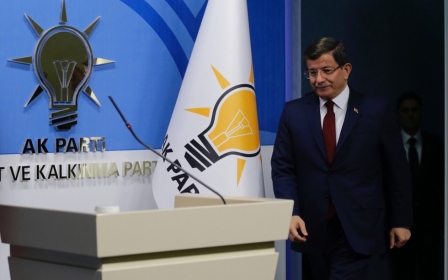Former Syrian opposition leader becomes Turkish opposition politician

The former head of the Syrian National Coalition swapped Syrian opposition for Turkish opposition last week, becoming co-founder of the new Future Party and raising eyebrows on both political scenes in the process.
Khaled Khoja, president of the western-backed SNC between 2015 and 2016, joined former Turkish prime minister Ahmet Davutoglu and 152 other figures in setting up the new movement that has broken from the ruling Justice and Development Party (AKP).
The former SNC head has launched the party using the name Alptekin Hocaoglu, which he assumed when taking Turkish citizenship in 1993, a move condemned by many Syrians.
“It's despicable given that Khaled can be written Halit in Turkish. This big name change is not needed," Suhail al-Ghazi, an Istanbul-based Syrian analyst, told Middle East Eye.
Left-wing Turkish newspapers, which overwhelmingly support the Syrian government despite strong pro-opposition sentiment in Turkey, described Khoja as a “jihadi” or a member of the Free Syrian Army rebel alliance, due to his former association with the SNC.
New MEE newsletter: Jerusalem Dispatch
Sign up to get the latest insights and analysis on Israel-Palestine, alongside Turkey Unpacked and other MEE newsletters
'I was elected to the Syrian Coalition thanks to my ethnicity, which is Turkish'
- Khaled Khoja
“It is revealed that the Syrian [Khaled Khoja] was the former head of the Syrian jihadi umbrella group and is wanted by the Syrian state for terrorism charges,” Birgun, a leftist daily paper, said on Sunday.
Khoja, a medical doctor who owns hospitals in Turkey, emphasised his Turkish roots while talking to MEE.
“My mother and father were Turkish citizens who later emigrated to Syria,” Khoja said.
“I left Syria in 1982 and finally enrolled at Izmir's Dokuz Eylul University medical school in Turkey. Then I claimed Turkish citizenship. Since then I have always used my Turkish ID because I don’t have anything at all proving that I also hold Syrian citizenship.”
Khoja says his Turkish identity was known by the Syrian opposition leadership, and his citizenship helped the movement cut through bureaucratic red tape in Turkey, for instance when establishing and registering SNC offices.
According to Khoja, the opposition struggled to find prominent members from Syria's ethnic Turkish community, which was fearful of reprisals from Assad's forces. That, he said, helped propel him to a leading position in the SNC.
“I was elected to the Syrian Coalition thanks to my ethnicity, which is Turkish," Khoja said.
Longstanding partnership
Khoja and Davutoglu have worked in similar spheres for some time.
As close adviser to then-prime minister Recep Tayyip Erdogan and later as foreign minister, Davutoglu was very influential in first establishing close ties with Syrian President Bashar al-Assad's government, and then abandoning it following the 2011 revolution against his rule.
“I first contacted [Davutoglu] in 2006 to seek support for the activists who were imprisoned by Assad over a declaration they signed that called for more rights and freedoms for the Syrian society,” Khoja said.
Since then, the two men have been in frequent contact, especially between 2015 and 2016 when Khoja was head of the Syrian political opposition.
“I wanted to become part of this reformist [Future] party because it will strive for individual freedoms and rights in Turkey,” he said.
“I was inspired by Turkey's model in the early 2000s. I was telling my friends in the region that a country run by a democratically elected conservative government that respects rights and freedoms was possible.
"Unfortunately, instead of being a model country for the region, Turkey is becoming more like the Middle East.”
Syrian analyst Ghazi, however, notes that Khoja was mostly silent as Erdogan, now president, has carried out some of his most controversial and authoritarian policies.
“He condemned the termination of the contracts of two Turkish journalists who met Davutoglu a couple months ago, but other than that he hasn't shared any anti-AKP or anti-Erdogan views,” Ghazi said.
When launching the Future party on Wednesday, Davutoglu called for a return of the politics that his former party the AKP practised before the 2017 constitutional referendum that brought in a presidential system and cemented Erdogan's control.
However, Khoja said his Future party membership won't prevent him from lending support to some of the government's policies, such as signing a security deal with Libya's UN-recognised Government of National Accord.
"Of course I will work for the good of immigrants from Middle Eastern countries who bring investment, talent and social contribution. They have a lot to add, from nanotech to various fields," he said.
Allegations that Khoja is a militant or "jihadi", however, are met with amusement.
“I laugh at the people who claim I was part of the Free Syrian Army or jihadis,” Khoja said.
“We merely wanted to establish a moderate political group that would show the world what would be possible if Assad was toppled. I have numerous pictures with heads of states in Europe. I haven't been in Syria since 1983. ”
Middle East Eye delivers independent and unrivalled coverage and analysis of the Middle East, North Africa and beyond. To learn more about republishing this content and the associated fees, please fill out this form. More about MEE can be found here.





